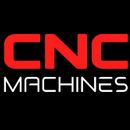Flexible Manufacturing Systems (FMS): Enhancing Agility in Modern Manufacturing

Flexible Manufacturing Systems (FMS): Enhancing Agility in Modern Manufacturing
In today's dynamic manufacturing landscape, adaptability and efficiency are paramount. Flexible Manufacturing Systems (FMS) have emerged as a solution, enabling manufacturers to swiftly respond to market changes, customize products, and optimize production processes.
🔍 What is a Flexible Manufacturing System?
A Flexible Manufacturing System (FMS) is a computer-controlled production setup designed to adapt to variations in product types and production volumes with minimal manual intervention. By integrating automated machinery, material handling systems, and centralized control, FMS allows for efficient and flexible manufacturing operations. (Autodesk)
🕰️ Historical Evolution of FMS
The concept of FMS originated in the 1960s and 1970s, driven by the need for manufacturing systems that could handle product variety and fluctuating demand. Advances in computer technology and automation facilitated the development of systems capable of producing different products without significant downtime or reconfiguration.
⚙️ Core Components of FMS
- Automated Workstations: Typically CNC machines capable of performing various operations.
- Material Handling Systems: Includes conveyors, robots, and Automated Guided Vehicles (AGVs) for efficient movement of materials.
- Central Control System: A computer system that manages and coordinates the entire manufacturing process.
- Storage Systems: Buffers and storage units for raw materials and finished products.
✅ Advantages of FMS
- Enhanced Flexibility: Quick adaptation to product changes and customization requests. (Autodesk)
- Reduced Lead Times: Faster production cycles due to automation and efficient workflows.
- Lower Labor Costs: Automation reduces the need for manual labor, leading to cost savings.
- Improved Product Quality: Consistent and precise manufacturing processes enhance product quality.
- Efficient Resource Utilization: Optimized use of materials and equipment reduces waste.
⚠️ Disadvantages of FMS
- High Initial Investment: Significant capital is required for setup and integration.
- Complex Implementation: Requires careful planning and skilled personnel for successful deployment.
- Maintenance Challenges: Sophisticated systems necessitate regular maintenance and technical expertise.
- Potential Downtime: System failures can halt production, impacting delivery schedules. (Makino)
🌐 Industries Leveraging FMS
- Automotive: Manufacturers like Magna utilize FMS for multi-OEM contract manufacturing, allowing for flexible production of various vehicle models. (Magna)
- Aerospace: Production of complex components with high precision requirements.
- Electronics: Adaptation to rapid technological changes and product variations.
- Medical Devices: Customization and compliance with stringent quality standards.
- Food and Beverage: Adaptation to changing consumer preferences and regulatory requirements.
📊 Case Study: Prince Industries
Prince Industries, a precision contract manufacturer, implemented an FMS to enhance its production capabilities. Serving sectors like construction, healthcare, and telecommunications, the company leveraged FMS to achieve faster product launches and improved manufacturing efficiency.
🔮 The Future of FMS
The integration of Industry 4.0 technologies, such as IoT, AI, and advanced robotics, is set to further enhance the capabilities of FMS. These advancements will lead to smarter, more responsive manufacturing systems capable of real-time decision-making and increased autonomy.
SEO Keywords: Flexible Manufacturing System, FMS, automated manufacturing, production flexibility, manufacturing efficiency, Industry 4.0, smart manufacturing.


